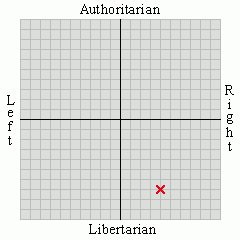Just as an aside at this point, I'd like to ask if anyone in the Cobbleition has any idea to get Britain back into surplus? Dave? Nick? No? Er... Ed and Ed? No, you've already tried spending even more, remember?
Anyway, among other things Treasurer Wayne Swan has said he's done is to achieve a budget which is free of rorts - 'rort' being Australian for spunking taxpayers' money up the wall unnecessarily, generally in such a way as to let a bunch of chancers cash in and run off with most of it. The word may not be familiar to readers in Britain or other parts of the English speaking world but I'm pretty sure the concept will be. The fact that Australians have a special word for it is probably a testament either to their inventiveness when it comes to language or the incompetence of the country's politicians, perhaps both. The last really big rort was one I blogged on just over a year ago - the home insulation program in which home owners were offered government grants to have roof insulation batts, typically pink for some reason, installed in their lofts. This was such a good example example of government intervention going catastrophically wrong on many levels that you can practically make a politician flinch simply by saying the words "pink batts".
The government men indeed came to help with 'handouts', and when they were finished 'helping' cowboy fitters had pockets full of taxpayer's cash, hundreds of thousands of Australian homes ended up with substandard, badly fitted or simply unneeded loft insulation, more than a hundred houses were damaged by fire, thousands of jobs were put at risk and four deaths had been linked to the programme.This was all horrifyingly embarrassing for the government at the time, which despite an election and a change of faces at the top is still more or less the same government we have now, and which is therefore promising that there won't be anything like that happening with this budget. Oh, no, nothing like that at all. Well... apart from this:
[...]
Under the Home Insulation Program the assistance is paid directly to the insulation installer, on behalf of the Householder, and $1,600 is expected to cover the cost of insulating an average home, so for most people there should be no more to pay.The first thing that should have been expected from this is that many smaller jobs would now come in at around $1,600 regardless of size. The second is that having created an artificial boom in the supply and fitting of insulation it's natural that new companies would jump in to try and grab a share of all the taxpayer's money being hosed around. This is fine if the demand created by a subsidy becomes self sustaining, and I'm sure the wonks in Canberra hoped that this would happen, but if that doesn't occur by the time a subsidy scheme ends then suddenly, almost overnight really, the market is oversupplied.
[...]
[The third and most serious problem is] that whenever the government gets out its chequebook almost inevitably cowboys and fraudsters are attracted in the hope that the government is too busy giving away taxpayers' money to look too carefully at the work it was supposed to pay for. Sure enough the Home Insulation Programme, despite supposed safeguards such as a government approved list of companies, saw everything. There was the merely deceitful, such as falsely telling people that insulation batts need to be replaced periodically. There was the fraudulent, such as submitting claims to the government for non-existent work. And there was the downright dangerous: fires blamed on ceiling downlights igniting the insulation and even whole roofs becoming electrified because of badly installed foil insulation.
COMMUNICATIONS Minister Stephen Conroy has defended the massive cost of installing television set top boxes in the homes of pensioners.No, Stephen, the country will be down the $308 million you and Wayne Swan have budgeted, because you can be damned sure that there are people out there planning to grab every last cent. Just think: one in the morning, one in the afternoon, $700 for a day's work installing - and having been the proud owner of a couple of set top boxes I'd say the word 'installing' for sorting out up to six but possibly as few as just one cable and plugging the bloody thing into the main is seriously gilding the lily [corrected thanks to commenter Dave pointing out that lilies do not in fact glide - AE] - two set tops boxes bought by the federal government for twice the going rate. If you can keep that up for 8 months you're looking at the thick end of a hundred thousand dollars of taxpayers' hard earned filling up your pockets. It'd be nice for someone to tell me this scenario is way off base but unfortunately we really don't know because the politicians refuse to tell us the specifics.
He admitted it would cost taxpayers $350 per installation and that each box would cost just $50-$60, double the cheapest available in electronics stores.
"We make no apologies for helping pensioners through this difficult transition," he told Sydney radio 2GB this morning.
Mr Conroy said the whole country would benefit when the analog television spectrum was switched off and sold off.
Communications Minister Stephen Conroy's office said yesterday the package cost about $350 per person, but his spokesman declined to provide a breakdown of labour, equipment and administrative costs, saying it was "commercial in confidence".However, they are promising that it won't be pink batts all over again, mainly because the Opposition are saying it will be just like pink batts all over again.
"I will never apologise, never apologise for supporting our pensioners," he said of the program, to install $30 set top boxes at a cost of $400 each.Oh, accredited people, the answer to everything. Except of course it's no answer at all to the question of why it's necessary for the government to do it at all, let alone spend as much as $400 per person on what would probably come in for well under half that even if people paid someone to install the box and far less if they simply read the instruction book that comes with the box. The way I see it is that it's not a government function to go buy our electronic goods for us, and if it thinks it can afford to do so then it's clearly taken more than it needed in taxes and should simply give the money back for people to do with as they will.
[...]
Mr Swan said the scheme had already been rolled out to 38,000 pensioners and was running well.
"There's a tender process that is gone through. There are accredited people who not only provide the box, but set it up and work with the household to make sure it works," he said.
However, in fairness to the Labor government I feel I should defend them against the Opposition's charge that this is just like the pink batts rort because there's an important difference. It's not likely that any deaths will end up being blamed on this, not even if the specially accredited installers leave a box turned on to a special 2 hour long edition of Million Dollar Drop.



















